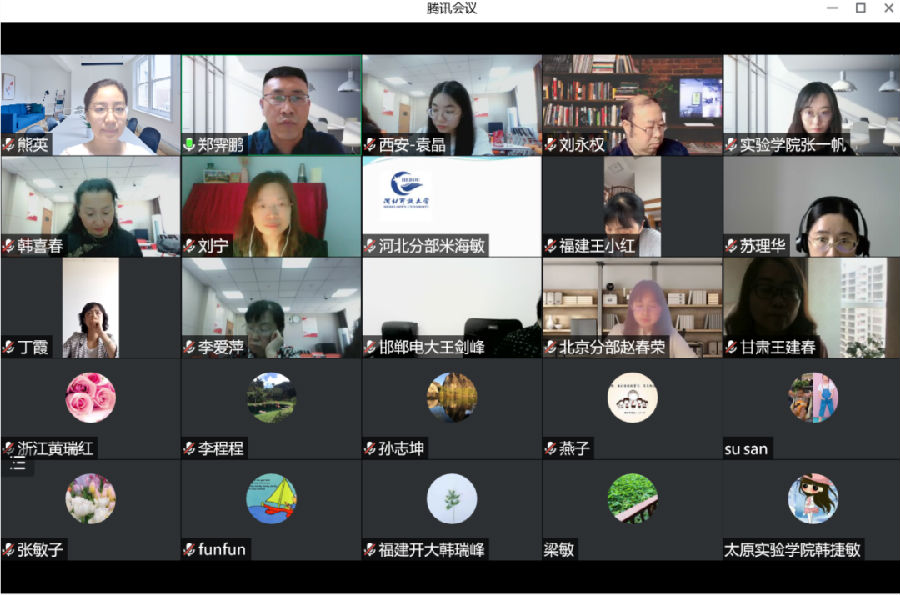 On the afternoon of 1 June 2022, the Faculty of Foreign Languages of the Open University of China (OUC) held a seminar to prepare the AI-empowered English smart teaching reform project via video link. Forty-two teachers to join the teaching reform pilot project from the OUC headquarters and nine branches took part in the event.
On the afternoon of 1 June 2022, the Faculty of Foreign Languages of the Open University of China (OUC) held a seminar to prepare the AI-empowered English smart teaching reform project via video link. Forty-two teachers to join the teaching reform pilot project from the OUC headquarters and nine branches took part in the event.

During the meeting, Professor Liu Yongquan gave a report themed “Knowledge Graph and Development of Programme Preparing for the Degree-Conferral English Examination,” in which he gave a systematic analysis of what a knowledge graph is, and why and how to construct it, providing necessary knowledge and theoretical support for the teaching reform project. Professor Liu pointed out that the new teaching materials have been developed based on the knowledge graph and are able to capture the knowledge and extract the concepts, facts, stories, and theories in existing disciplines to build a knowledge graph system that is integrated and linked with knowledge from all kinds of disciplines and goes beyond the borders of existing teaching materials, programmes, and disciplines. The knowledge cross-blending and integrated development in disciplines such as new humanities, medicine, and agronomy can be effectively promoted through the alignment, correlation, and merging operations of knowledge graphs.
The meeting also included reports on the progress of initial preparation work for the project and arrangements for future work. Leaders of English teaching from nine pilot branches discussed the courses, target groups, and models that the reform aims at and discussed any issues or areas of confusion in the work at present.
The meeting also clarified the directions and key points of smart teaching reform. The teaching reform project not only builds on the previous teaching reform, but is also expected to make breakthroughs based on its existed outcomes. Teachers from pilot branches are encouraged to actively partake in the smart teaching practice, to try to be involved in the development of knowledge graphs and virtual teaching research room, and to explore examination and assessment reform models based on IT-integrated language teaching. It is expected that this kind of teaching can promote the development of teaching teams, and teaching reform could substantially help teachers grow in the long run. It is hoped that smart teaching can be truly applied to language teaching practice to improve teaching quality, serve students’ needs for language study, and boost teachers’ research capabilities.
By Li Chengcheng, OUC